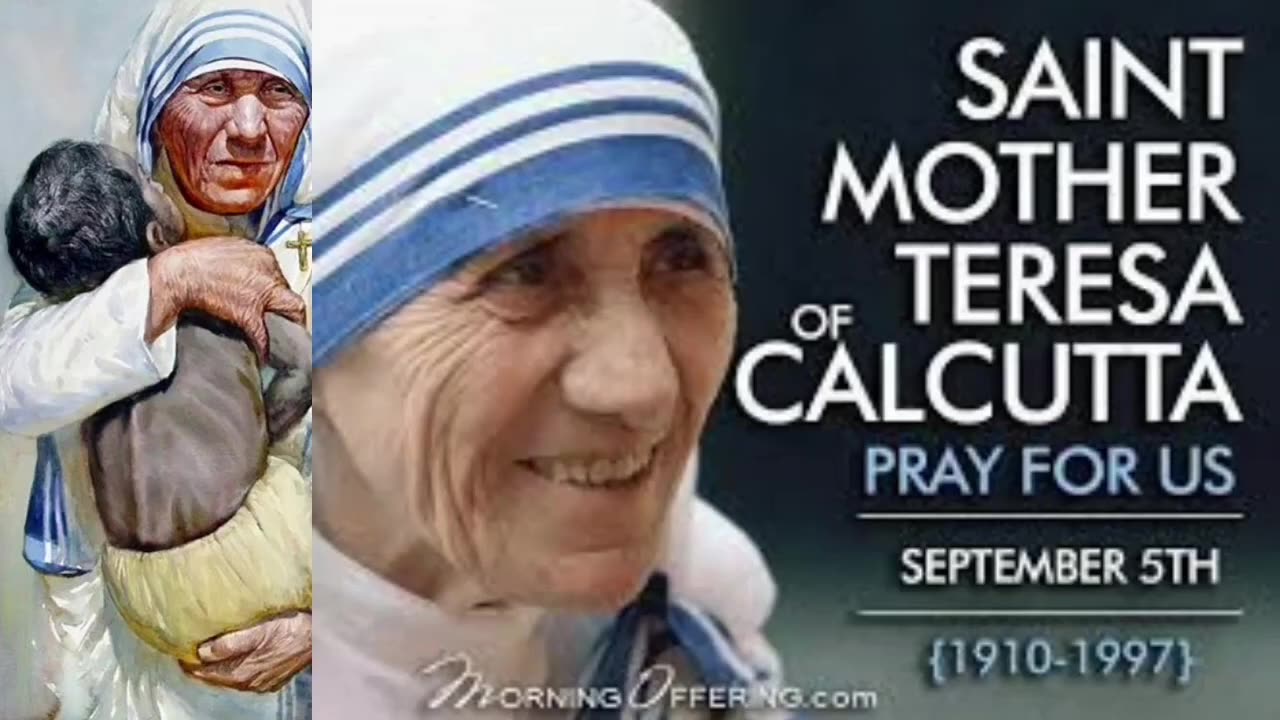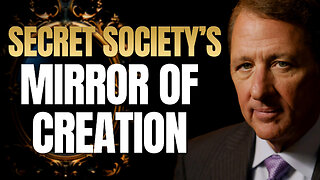Premium Only Content

MOTHER THERESA from CALCUTTA
Mother Teresa of Calcutta – Biography
Mother Teresa (1910 – 1997), born *Anjezë Gonxhe Bojaxhiu*, was an Albanian‑Indian Catholic nun and missionary who devoted her life to serving the poorest of the poor in Kolkata (Calcutta), India. Canonized as Saint Teresa of Calcutta in 2016, she is remembered for compassion, self‑less service, and the founding of the Missionaries of Charity.
---
Early Life (1910 – 1928)
- *Born 26 August 1910* in *Üsküp, Ottoman Empire* (now Skopje, North Macedonia).
- Family: *Nikolla Bojaxhiu (father, merchant)*, *Drane Bojaxhiu (mother, devout Catholic)*.
- At age 12, felt a calling to religious life; by 18, joined the *Sisters of Loreto* in Ireland (training for mission work).
---
Arrival in India (1929 – 1948)
- *1929:* Arrived in India, teaching at *St. Mary’s School, Darjeeling*.
- *1931:* Took vows as a nun, choosing the name *Sister Mary Teresa* (after Thérèse of Lisieux).
- *1944:* Transferred to *Loreto Convent, Calcutta*, teaching geography and history to girls.
---
The Call Within (1946)
- *10 September 1946 (Feast of St. Francis of Assisi)*: While on a train to Darjeeling, she experienced a *“call within a call”*—a message from Jesus urging her to leave convent life and serve the poorest of the poor on the streets of Calcutta.
---
Founding the Missionaries of Charity (1950)
- *1948:* Received permission to leave Loreto, adopted Indian citizenship, and moved to the slums.
- *7 October 1950:* Established *Missionaries of Charity* with just 12 sisters.
- Core vows: *Poverty, Chastity, Obedience*, plus a *fourth vow – “wholehearted free service to the poorest of the poor.”*
---
Work in Calcutta
- *Home for the Dying (Kalighat)* – 1952, providing dignity and a place to die with love.
- *Nirmala Shishu Bhavan (Orphanage)* – care for abandoned children.
- *Leprosy clinics, mobile health units, hospices* – reaching out to lepers, HIV/AIDS patients, and victims of famine and disaster.
Expansion
- By 1997, *Missionaries of Charity* operated in *123 countries*, with *4,500 sisters*, *700 brothers*, and thousands of lay volunteers.
- Opened homes for *people with disabilities*, *victims of war*, and *refugees*.
Recognition & Honors
- *1962:* *Padma Shri* (India)
- *1971:* *Nobel Peace Prize* – accepted “in the name of the poor.”
- *1972:* *Bharat Ratna* (India’s highest civilian award).
- *1979:* *Balzan Prize*, *Templeton Prize* (1996).
Criticisms
- *Healthcare standards:* Critics noted poor sanitation and limited medical training of volunteers.
- *Conversion concerns:* Some accused the order of linking aid with Christian proselytism.
- *Pain management:* Limited use of analgesics due to religious views on suffering.
Defenders argue her intent was compassion, not proselytism, and that she welcomed people of all faiths.
Illness, Death, and Sainthood
- Health declined after 1983 (heart and spine issues).
- *5 September 1997:* Passed away in Calcutta; *state funeral* with thousands in attendance.
- *Beatified 19 October 2003* (Pope John Paul II).
- *Canonized 4 September 2016* (Pope Francis) – *Saint Teresa of Calcutta*.
Legacy
- *Missionaries of Charity* continue her work globally.
- *Symbol of self‑less love* for the destitute.
- *Quote:* “Not all of us can do great things. But we can do small things with great love.”
Sources: Vatican biographies, Nobel Prize archives, _Mother Teresa: Come Be My Light_
-
 LIVE
LIVE
PandaSub2000
8 hours agoLIVE 6:30pm ET | NINTENDO PLATFORMERS Thanksgiving Special
248 watching -
 1:03:06
1:03:06
MetatronGaming
21 hours agoThis is the scariest game ever (for an Italian)
51 -
 DVR
DVR
The White House
2 hours agoPresident Trump Participates in a Call with Service Members
45319 -
 LIVE
LIVE
a12cat34dog
1 hour agoHAPPY THANKSGIVING - I APPRECIATE YOU ALL SO MUCH {18+}
65 watching -
 24:55
24:55
Jasmin Laine
1 day agoCarney BRAGS About ‘Investment’—Poilievre Drops a FACT That Stops the Room
2.11K14 -
 LIVE
LIVE
SIM_N_SHIFT GAMING
16 minutes agoGRAND THEFT AUTO WITH FRIENDS
12 watching -
 LIVE
LIVE
VikingNilsen
10 hours ago🔴LIVE - VIKINGNILSEN - THE NEW PRELUDE - SOULFRAME
46 watching -
 7:45
7:45
Colion Noir
1 day agoThey Made Glock “Unconvertible” To Please Politicians, Guess What The Internet Did?
4.07K21 -
 23:42
23:42
The Kevin Trudeau Show Limitless
1 day agoThe Brotherhood’s Ancient Mirror Code Revealed
7.29K6 -
 11:21
11:21
Degenerate Jay
1 day ago $6.17 earnedSilent Hill's New Movie Could Be A Bad Idea...
14.5K3